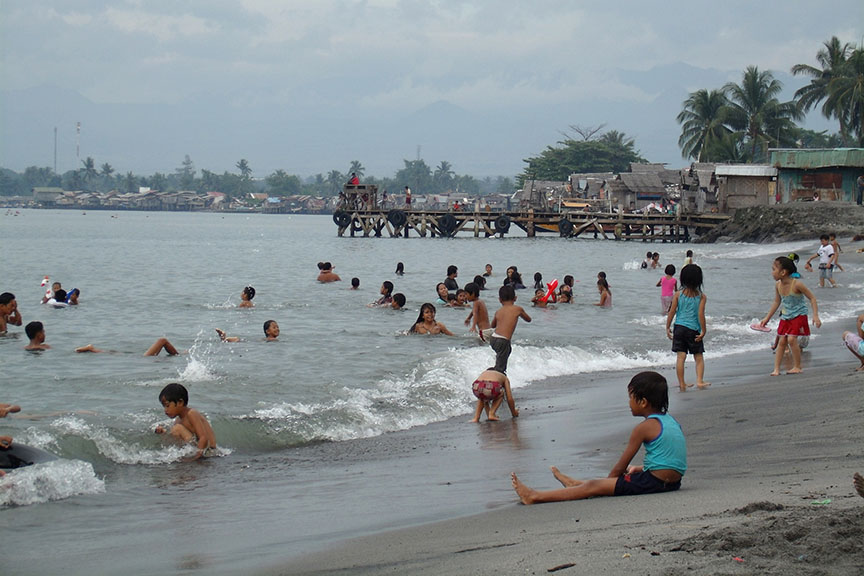GENERAL SANTOS CITY (MindaNews / 29 Nov) – The city government has raised concern over the high fecal coliform levels in a stretch of the coastal waters in Sarangani Bay, including a popular public beach.
 The Queen Tuna Park (formerly known as Lion’s Beach) in General Santos City filled with beachgoers on a weekend circa 2010. Authorities are worried over the high level of fecal coliform at the public beach. MindaNews file photo
The Queen Tuna Park (formerly known as Lion’s Beach) in General Santos City filled with beachgoers on a weekend circa 2010. Authorities are worried over the high level of fecal coliform at the public beach. MindaNews file photo
Anthony Agorilla, public services officer of the Waste Management Office’s (WMO) air and water pollution control division, said Friday their water quality monitoring these past months in the coastal waters off the Queen Tuna Park and adjacent areas have showed increasing levels of fecal coliform.
He said the test results “substantially exceeded” the standard fecal coliform level for the area of 200 MPN/100 mL or most probable number per 100 milliliters.
The figures varied from 500 MPN/100 mL to “almost 900” MPN/100 mL for certain periods, he said.
“There were instances when the test results were not quite high but still within the critical level,” he said in an interview over Brigada News FM here.
Agorilla said their office conducts water sampling every six months in selected portions of the bay.
The City Environment and Natural Resources Office (CENRO) and the Department of Environment and Natural Resources-Environmental Management Bureau conduct separate monthly monitoring activities, he said.
Citing their assessment, he said the noted high fecal coliform levels, especially in the Queen Tuna Park, indicates the continuing rampant open defecation practices of residents in nearby communities.
The seaside park, formerly known as Lion’s Beach, is a popular destination for residents who could not go to farther beach resorts.
The area, which is just across the city central public market, hosts crowded communities under the jurisdiction of Barangays Bula, Dadiangas South and Dadiangas West.
Agorilla said another cause for the contamination could be the outflow of sewage from waterways and wastewater from the public market.
He said the market has its own sewerage treatment plant but it needs immediate rehabilitation to properly function.
Along with the CENRO, Agorilla said they already recommended to Mayor Ronnel Rivera the temporary closure from the public of the Queen Tuna Park and nearby beaches due to the problem.
“This is a big concern for beach goers as they could get various diseases, like diarrhea and skin rashes,” he said.
Agorilla said an inter-agency body, including the WMO, currently handling the matter will meet anew in the coming days to discuss such recommendation.
He added that the closure of the public beach will be decided by the mayor and should be backed by a resolution from the city council. (MindaNews)
